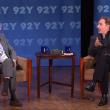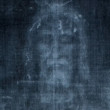Revisiting the Argument from Desire
by Bishop Robert Barron
Filed under The Existence of God

One of the classical demonstrations of God’s existence is the so-called argument from desire. It can be stated in a very succinct manner as follows. Every innate or natural desire corresponds to some objective state of affairs that fulfills it. Now we all have an innate or natural desire for ultimate fulfillment, ultimate joy, which nothing in this world can possibly satisfy. Therefore there must exist objectively a supernatural condition that grounds perfect fulfillment and happiness,... Read More
Why Must There Be at Least One Unconditioned Reality?
by Karlo Broussard
Filed under The Existence of God

NOTE: Today we kick off a six-part series by Karlo Broussard on a metaphysical proof for God's existence. The posts will run each of the next six Mondays. Part 1 - Why Must There Be at Least One Unconditioned Reality? Part 2 - The Absolute Simplicity of Unconditioned Reality Part 3 - The Absolute Uniqueness of Unconditioned Reality Part 4 - The Key Divine Attributes of the Absolutely Unique and Simple Unconditioned Reality Part 5 - Key Attributes: Perfection the Three Omnis Part 6... Read More
How to Perfectly Know the Existence of God
by Joe Heschmeyer
Filed under The Existence of God

It's common today to hear both believers and nonbelievers claim that the existence of God is ultimately unknowable, or at least unprovable. According to this view, we're left to take a leap of faith, or else to go with the option we think is more likely. Classical theism rejects this idea completely. It claims to be able to prove the existence of God - to be able to prove, in fact, that He can't not exist. And what's amazing is that these theists seem capable of following through... Read More
Prayer, Science, and the Existence of God
by Trent Horn
Filed under Belief, Science, The Existence of God

Can science find God? If God is defined as a being (or perhaps “the ground of being”) that is neither composed of matter nor confined to a spatial location, then the answer seems to be no. After all, science is limited to explaining the natural, physical world. If God exists beyond that world and is not composed of anything found within it, then he seems to be out of the reach of scientific inquiry. But even if science can’t “find” God in the same way I can find my car in a parking... Read More
What if We Lived in a Simulated Universe and Worshiped a Pimply Teenager?
by Dr. Stacy Trasancos
Filed under Cosmology, The Existence of God

Because the audience at Strange Notions is a combination of Catholics and atheists, I thought the comments in this interview between Brian Greene and Richard Dawkins would be a fun change of pace for a discussion. Here's a summary of the interview. Dr. Nick Bostrom, a philsopher at the University of Oxford, proposed an argument that in the future we will have powerful supercomputers that can create universes 'in silico.' In these simulated universes, sentient beings will exist unaware... Read More
The Historical Argument for God
by Dr. Peter Kreeft
Filed under History, The Existence of God

The argument from history is both stronger and weaker than the other arguments for the existence of God. It is stronger because its data (its evidence) are some facts of history, things that have happened on this planet, rather than principles or ideas. People are more convinced by facts than by principles. But it is weaker because the historical data amount only to strong clues, not to deductive proofs. The argument from history is the strongest psychologically with most people, but it... Read More
Can We Know God’s Existence with Certainty?
by Dr. Edward Feser
Filed under The Existence of God

The Catholic Church makes some bold claims about what can be known about God via unaided reason. The First Vatican Council teaches: "The same Holy mother Church holds and teaches that God, the source and end of all things, can be known with certainty from the consideration of created things, by the natural power of human reason… If anyone says that the one, true God, our creator and lord, cannot be known with certainty from the things that have been made, by the natural light... Read More
Does the Shroud of Turin Prove God?
by Fr. Dwight Longenecker
Filed under The Existence of God, The Resurrection

I've written here at Strange Notions in the past about miracles and skepticism, and about the greatest miracle claim of all, Jesus' resurrection from the dead. Such miracles serve as arguments for God’s existence, but not philosophical arguments based on design, prime movers, etc. They are based on physical, historical evidence. The arguments go like this: If atheistic materialism is true, then the natural world must be a closed system. Everything must be explained within that closed... Read More
Revisiting the Argument from Motion
by Bishop Robert Barron
Filed under The Existence of God

One of the unintended but happy consequences of the emergence of the new atheism is a renewed interest in the classical arguments for God’s existence. Eager to defend the faith that is so vigorously attacked today, Catholic apologists and evangelists have been recovering these rational demonstrations of the truth of God; and the atheists, just as eager to defend their position, have entered into the fray. In the process, these ancient arguments, long thought by many to be obsolete, have... Read More
The Efficient Causality Argument for God
by Dr. Peter Kreeft
Filed under The Existence of God

All people notice that some things cause other things to be (to begin to be, to continue to be, or both). For example, a man playing the piano is causing the music that we hear. If he stops, so does the music. Now ask yourself: Are all things caused to exist by other things right now? Suppose they are. That is, suppose there is no Uncaused Being, no God. Then nothing could exist right now. For remember, on the no-God hypothesis, all things need a present cause outside of themselves in... Read More






